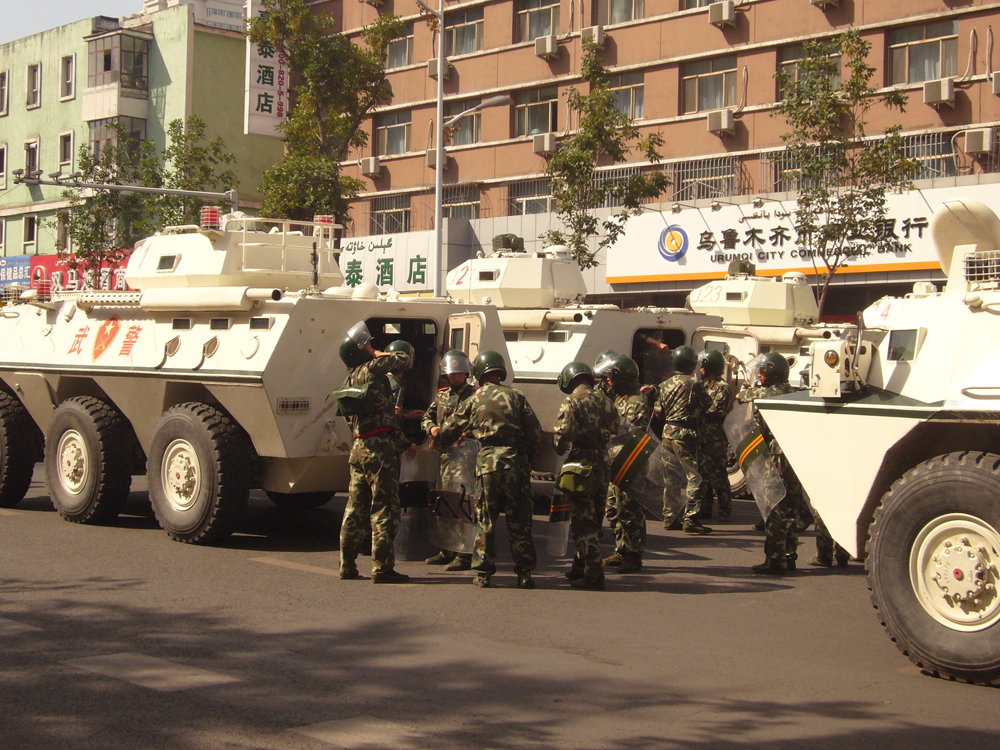by JOJJE OLSSON18:47, 19 MARCH 2019Updated 22:58, 31 MARCH 2020
Last September, Abdakir, his wife and two children feared for their lives. The Uyghur family had been denied asylum by the Swedish Migration Board, as well as in the Migration Court, after having appealed the original decision. They were told to contact the Chinese embassy to arrange for travel back to East Turkistan, the very same region that Abdakir had just fled under dramatic circumstances.
However, in an equally dramatic reversal of fortune, Abdakir picked up Swedish residence permits for his family last week, valid for three years. This was due to a new decision from Sweden’s Migration Board to grant protection to all Uyghurs earlier residing in the East Turkistan region.
The primary reason for originally denying asylum to the family appeared to be a lack of knowledge about the situation for Muslims in western China. The persons behind the decision, as well as the entire Migration Board, had an outdated stance on developments in East Turkistan and were making decisions based on reports compiled several years ago.
Luckily, the case had won the attention of the New York Times and other international media outlets, with reporters visiting Abdakir’s family at their temporary residence in Sweden for interviews.
Soon enough, an investigation was launched in order to create a new report for Lifos, the internal database that the Migration Board uses to decide asylum matters. Several organisations, academics, journalists and ethnic minorities from China were interviewed in the process.
In turn, this report led to a “judicial comment,” issued on January 25 by Fredrik Beijer, director general of legal affairs at the Migration Board, guaranteeing Uyghurs refugee status.
Islam ‘practically forbidden’
Marie Källbom, the lawyer who has handled Abdakir’s case since last Autumn, told HKFP that this judicial comment has only just been implemented, as the time to lodge any appeal against the comment had expired.
“Practising the Muslim religion is practically forbidden [in East Turkistan],” states the five-page judicial comment published in Swedish. It also says that an individual that is “Uyghur or belonging to other Turkic Muslim minority groups residing in East Turkistan is at high risk for arbitrary detention and, without prior judicial proceedings, be put in reeducation camp”.
As for the camps, Beijer’s judicial comment states that torture, as well as other physical and psychological punishments, are commonplace. And aside from the camps themselves, other kinds of repression and discrimination are also likely, particularly if a person returns to East Turkistan from abroad.
Beijing has claimed that it is embarking upon a campaign to tackle unrest and separatism in the region. However, the UN says a million Uyghurs have been arbitrarily detained in the extralegal “political reeducation camps,” whilst Human Rights Watch reports that surveillance and repression in East Turkistan has increased dramatically since 2016. The rights NGO says that biometric data is collected from residents, passports are confiscated, religious activity restricted, “abnormally long” beards, public prayers and Muslim veils are banned, whilst vehicle and mobile phone owners are made to install trackers.
Protection granted
Sweden’s judicial comment states that “asylum seekers from China who are Muslim and Uyghur, or belonging to any other Turkic minority group, with past residence in the East Turkistan Uyghur province” will now be viewed as a refugee with the need for protection.
However, it also emphasises that not all Uyghurs are Chinese citizens, even if they have a East Turkistan background, and states that not all Uyghurs – or other Turkic Muslim minorities – have resided in East Turkistan. Hence, investigating the citizenship and hometown of the applicant is said to be of utmost importance.
Muslims or members of Turkic minorities without past residence in the East Turkistan region are described as running ”a slightly lower but not negligible risk” to be subjected to the same treatment.
Meanwhile, individuals with close connections to the Chinese state will not necessarily be deemed as refugees per se. Exempted are also made individuals suspected of war crimes, or crimes against humanity. Such suspicions, as noted in the judicial comment, must be investigated thoroughly due to reports that individuals from Turkic Muslim minority groups have been fighting for Islamic terror organisations.
The new judicial comment is nevertheless likely to make a difference: “It means that other Uyghurs also have the right of protection if they successfully make their way to Sweden, as long as they can prove that they are from the East Turkistan region. Passports are the best way to prove this”, says lawyer Marie Källbom.
Abdakir and his family are now waiting to move into accommodation allocated by the Swedish Migration Board. As three years is the standard length for residence permits granted to refugees, their case will be tested again in 2022.
‘Practising Islam is practically forbidden’: How Sweden granted refugee status to all Uyghurs from East Turkistan, China | Hong Kong Free Press HKFP (hongkongfp.com)

